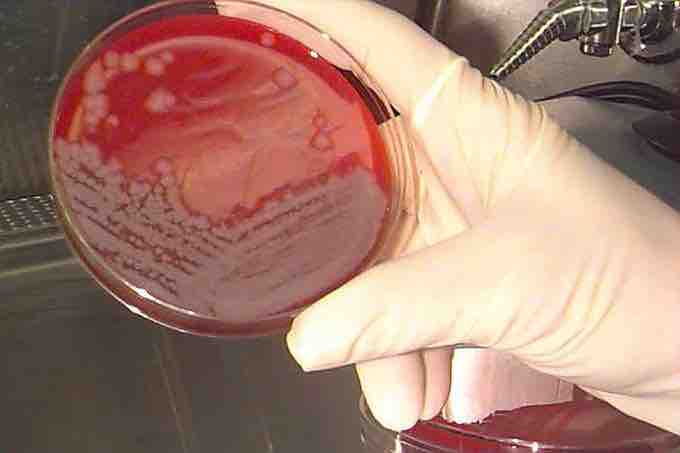The Role of Nutrients
Nutrients are necessary for microbial growth and play a vital role in the proper cultivation of microorganisms in the laboratory and for proper growth in their natural environments. The types of nutrients that are required include those that supply energy, carbon and additional necessary materials. The nutrients used to propagate growth are organism-specific, based on their cellular and metabolic processes. .

Anthrax Culture
An image of an anthrax culture grown on a petri dish. In order for microogranisms to be cultured in the laboratory or undergo successful growth in their natural environment, the proper nutrients are absolutely necessary.
The common nutrients which are found to be required in all living things include carbon, nitrogen, sulfur, phosphorus, potassium, magnesium, calcium, oxygen, iron and additional trace elements. Essential nutrients are nutrients absolutely required by an organism. Two categories of essential nutrients are macro- and micro-nutrients. Macronutrients are necessary in large amounts; micronutrients tend to be needed in smaller amounts and are often trace elements.
Nutrients as Limiting Factors
In regard to required nutrients for proper growth, there are often limiting factors involved. The limiting factor or limiting nutrient effects and controls growth. The availability of specific nutrients dictates organismal growth by controlling and limiting activation of cellular and metabolic pathways necessary for progress. When all nutrients and parameters are ideal and constant during the growth phase, this is regarded as a steady state: all requirements are present and microorganisms thrive. In circumstances where there are less than ideal parameters, such as a lack of specific requirements, the growth process is affected.
In industrial microbiology this concept is critical, as microbial growth and production is dictated by proper cellular growth and metabolism. The production of necessary components if often controlled by the presence and concentration of a limiting nutrient. Hence, it is critical to identify the required nutrients and ensure these are supplied in the culturing of microorganisms.